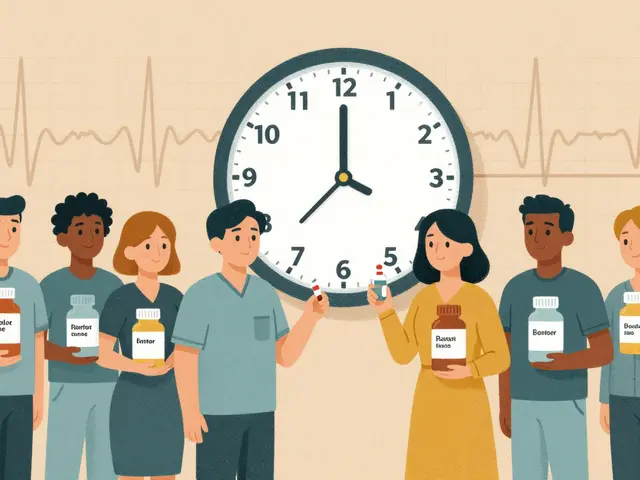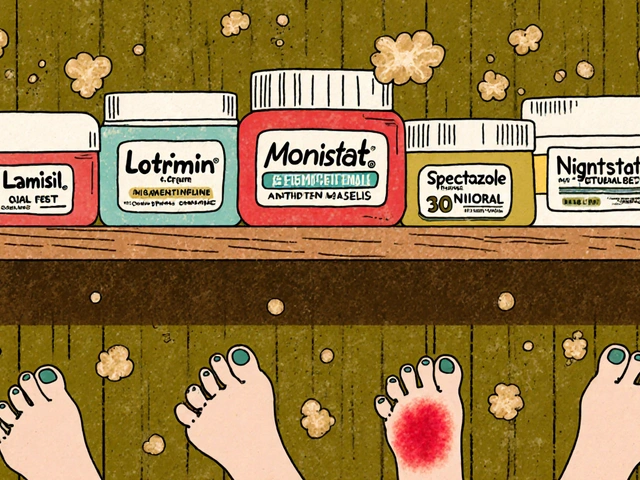Health tips: simple steps to feel better and stay safe
Small changes can give big wins for your health. These tips focus on things you can actually do today — better sleep, smarter meds, safer supplements, and how to pick reliable online pharmacies. I’ll keep this practical so you can use it, not just read it.
Daily habits that add up
Start with sleep, water, and movement. Aim for consistent sleep times and try 20–30 minutes of brisk walking most days. Drink plain water before feeling thirsty — a glass in the morning often helps digestion and energy. Add a quick strength move (squats or push-ups) twice a week to keep muscles and metabolism working.
Small food swaps help too: swap refined carbs for whole grains, add a serving of oily fish or a flaxseed spoon for omega-3s, and keep a fruit or nuts snack ready so you don’t reach for empty calories. These changes lower inflammation and help mood without needing a drastic diet overhaul.
Medication and supplement safety
Treat medicines like tools: use them correctly and keep them tidy. Always keep a current list of prescriptions and doses — share it with any new doctor. Watch for new side effects after starting a drug and tell your clinician early. For example, acne drugs like Accutane need close monitoring; blood tests and a clear side-effect plan are not optional.
When thinking about supplements, choose those with clear dosing and third-party testing. The article on "Natural Mood-Boosting Supplements" breaks down options like SAM-e, rhodiola, and omega-3 with practical dosing tips. Avoid mega-doses unless a clinician recommends them.
If you’re buying meds online, safety matters more than price. Prefer pharmacies that show a license, a real address, clear contact info, and require a prescription for prescription drugs. The post "Where to Safely Buy Azithromycin Online" lists red flags like no prescription checks, unbelievable prices, or poor customer support. Keep records of orders and check packaging when it arrives.
Antibiotics are not candy. Use them only when prescribed and finish the course unless your doctor tells you otherwise. Misuse drives resistance and can make future infections harder to treat. If you’re switching medications — say replacing Glipizide for diabetes — use a checklist and clinical thresholds, not guesswork. Talk to your prescribing clinician about monitoring and alternatives.
Quick checklist you can use today: 1) Make a meds list and store it on your phone. 2) Check online pharmacy credentials before buying. 3) Pick supplements with third-party seals. 4) Set a sleep schedule and move daily. 5) Ask your doctor about side effects and monitoring plans.
Want deeper reading? Search our site for focused posts like "Affordable Thyroid Treatments," "Zantac: What Really Happened," or guides on online pharmacies and specific drugs. Use those articles to match tips above to your situation — and talk to a clinician when in doubt.

- Jul 31, 2023
- Posted by Cillian Osterfield
How to Prevent Ear Canal Infections While Traveling
Alright, folks, let's dive headfirst into the fun, yet oddly specific world of ear canal health while globe-trotting. Bet you didn't see that one coming, right? So, first things first, keep those ears dry - dampness is a bacteria's pool party. Also, try to refrain from poking around in there with cotton swabs, it's like poking an anthill with a stick, it only stirs up trouble. And last but not least, consider using earplugs when swimming. Who knew ear health could be such an adventure? Safe travels, and may your journey be free from ear canal infections!
Categories
- Health and Wellness (72)
- Medications (69)
- Health and Medicine (28)
- Pharmacy Services (12)
- Mental Health (9)
- Health and Career (2)
- Medical Research (2)
- Business and Finance (2)
- Health Information (2)
©2026 heydoctor.su. All rights reserved





